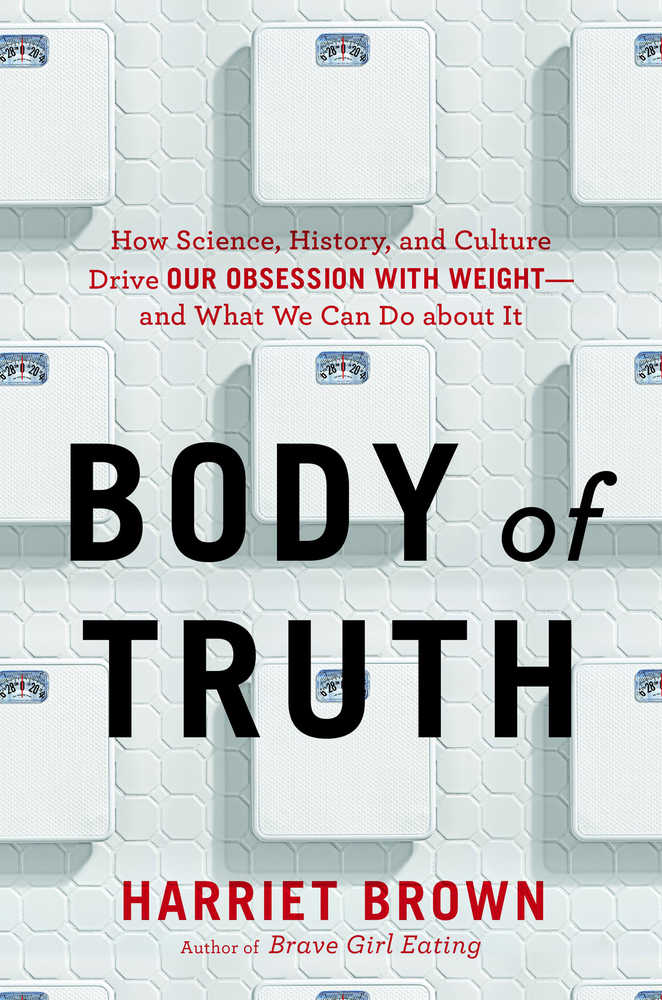Your summer clothes don’t fit this year.
You’ll admit that you weren’t paying attention: too many holiday cookies, too little New Years’ resolving. The pounds crept up and you need to lose them before they multiply again. It’s for your health and well-being, right?
Or maybe not. In the new book “Body of Truth” by Harriet Brown, you’ll see that everything you thought you knew about weight may be a big fat lie.
Some twenty-five years ago on a “sticky summer evening,” Harriet Brown sat in a therapist’s chair, sobbing about her weight. Once, she’d been thin but “three pregnancies and a whole lot of living” later, she couldn’t take off the pounds.
She was absolutely stunned when the therapist asked if she could learn to be okay with the body she had. She “couldn’t even consider the possibility” that having a few extra pounds wasn’t such a bad thing.
Even the language we use for weight has changed in the past few years: what was once chubby or husky is now “obese” or “overweight,” words that carry a meaner stigma. Yes, as a society, we’ve gained weight but our eating habits and our sedentary lives are not solely to blame. There are, says Brown, several reasons for weight gain, one of which is that dieting is generally detrimental.
Statistically speaking, just five percent of dieters keep the weight off, long-term; the other 95 percent of calorie-counters usually gain back any weight lost, and then some. We understand that yo-yo dieting is unhealthy, but we may not know that some researchers believe there’s no increased risk of death due to extra weight. Even so, says Brown, physicians sometimes admit to having “weight bias,” and treat (or don’t treat) patients accordingly.
But our obsession with weight goes much deeper than just physical effects.
Negative social pressure can affect our mental health, which suffers when we loathe our bodies and indulge in “fat talk.” What’s worse is that our emphasis on weight adversely affects future generations: some pediatricians recommend that infants be put on diets and one study found three-year-old children who were “unhappy with their bodies.”
Says Brown, “Something is definitely wrong with this picture.”
Food for thought. No pun intended, but that’s what you’ll find in “Body of Truth.” You’ll also find a good amount of controversy.
For readers who struggle with their weight, there’s a certain Ahhhhh-feeling of freedom that comes with author Harriet Brown’s urging for acceptance. It’s hard not to see that our attitudes about being overweight have gone overboard, and it’s equally hard to argue with the experts and research she cites.
Definitely, this could cause weight-watching readers’ heads to spin – but Brown is quick to reassure the flummoxed: “There’s no one-size-fits-all approach…” when it comes to weight or loss thereof.
Overall, I really liked this book – in part, because it provides more balance in a world where new diets come out seemingly every day. If you’ve grown weary of that, then read “Body of Truth.” You may have nothing to lose.
The Bookworm is Terri Schlichenmeyer. Email her at bookwormsez@gmail.com.

